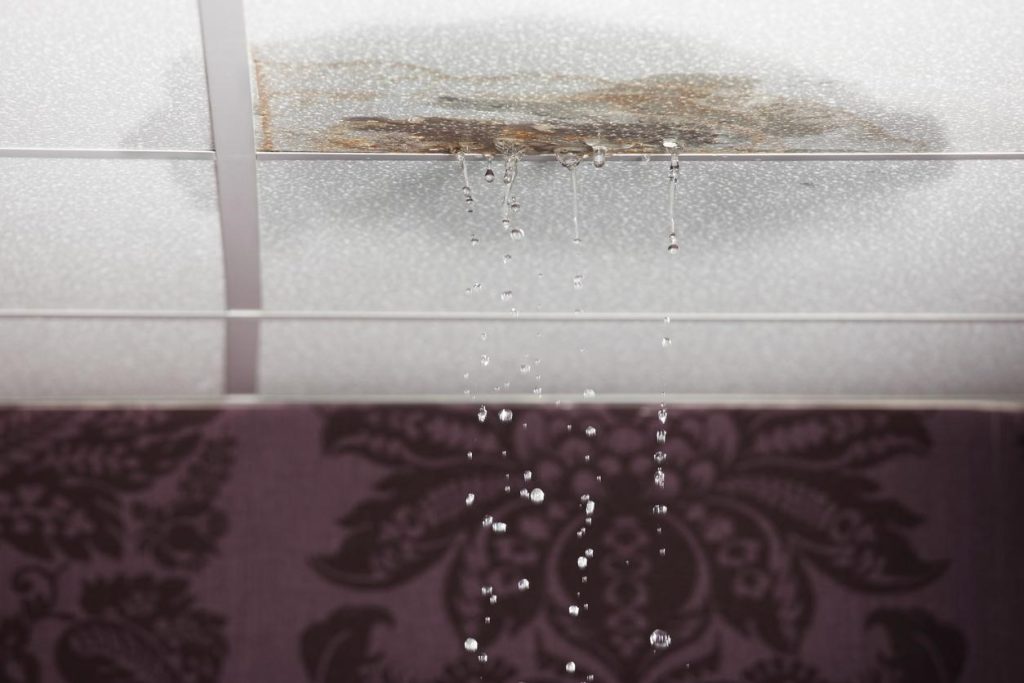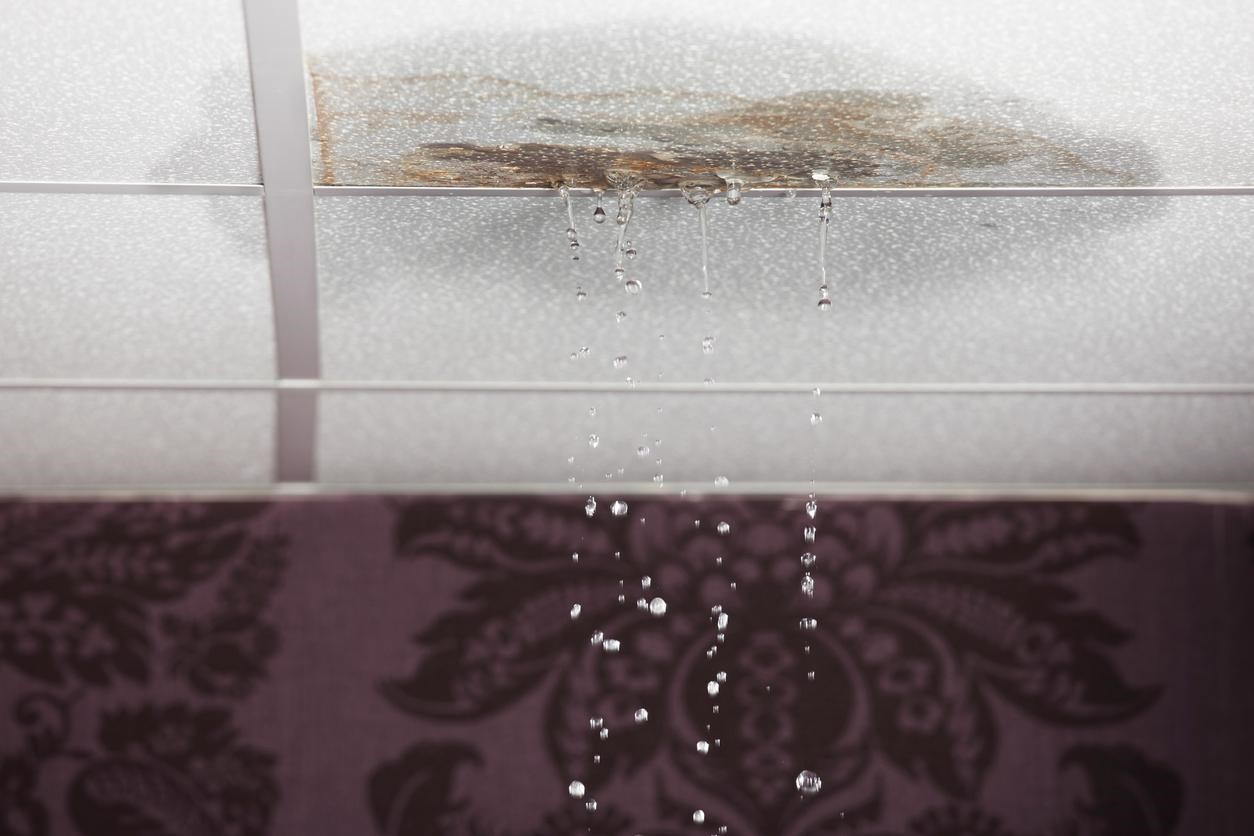Why Is My Bathroom Ceiling Dripping Water After a Shower? A dripping bathroom ceiling can be a frustrating and even dangerous problem. It can cause water damage to your home, mold growth, and even health problems. If you’re experiencing a dripping bathroom ceiling, it’s important to identify the cause of the leak and take steps to fix it as soon as possible.

What Causes a Dripping Bathroom Ceiling?
There are a number of possible causes of a dripping bathroom ceiling. The most common causes include:
- Leaking pipes: Leaking pipes are the most common cause of bathroom ceiling leaks. They can be caused by a variety of factors, such as corrosion, wear and tear, or damage from freezing.
- Damaged tiles or grout: Damaged tiles or grout can allow water to seep through to the ceiling below. This can happen due to impact damage, improper installation, or wear and tear. For example, if you drop a heavy object on your shower tiles, it could crack the tiles and cause a leak.
- Clogged or damaged drains: Clogged or damaged drains can cause water to back up and leak through the ceiling. This can happen if you don’t regularly clean your shower and bathtub to remove soap scum and other debris that can clog drains.
- Improper ventilation: Improper ventilation can lead to moisture buildup, which can contribute to mold growth and ceiling leaks. Bathrooms are typically small, enclosed spaces with no windows. This can lead to moisture buildup if there is not enough ventilation.
How to Fix a Dripping Bathroom Ceiling
Once you’ve identified the cause of the leak, you can take steps to fix it. The leak is caused by a leaking pipe, you’ll need to call a plumber to repair the pipe. If the leak is caused by damaged tiles or grout, you’ll need to replace the damaged tiles or grout. If the leak is caused by a clogged or damaged drain, you’ll need to clear the clog or repair the drain. The leak is caused by improper ventilation, you’ll need to improve the ventilation in your bathroom.
Preventing Bathroom Ceiling Leaks
The best way to prevent bathroom ceiling leaks is to take steps to prevent moisture buildup. You can do this by:
- Fixing any leaks in your pipes or drains. This is the most important step. If you have a leak, it’s only a matter of time before it causes damage.
- Regularly cleaning your shower and bathtub to remove soap scum and other debris that can clog drains. This will help to prevent clogs that can lead to leaks.
- Using a dehumidifier to reduce humidity in your bathroom. This is a good option if you have a bathroom that doesn’t have a lot of ventilation.
- Installing a fan in your bathroom to help ventilate the area. This is the most effective way to reduce moisture buildup in your bathroom.
Conclusion
Bathroom ceiling dripping water after shower can be a serious problem, but it’s one that can be fixed with the right diagnosis and treatment. By identifying the cause of the leak and taking steps to fix it, you can prevent further damage to your home and keep yourself and your family safe.
Call to Action:
If you’re experiencing a dripping bathroom ceiling, it’s important to take action as soon as possible. Contact a plumber or other professional to identify the cause of the leak and fix it.
Additional Information:
Here are some additional tips for preventing and fixing bathroom ceiling leaks:
- Inspect your bathroom regularly for signs of leaks. This includes looking for water stains on the ceiling, walls, or floors.
- If you see a leak, take action immediately. The longer you wait to fix a leak, the more damage it can cause.
- If you’re not comfortable fixing a leak yourself, call a plumber or other professional.
- When you’re fixing a leak, be sure to use the right tools and materials. This will help to ensure that the leak is fixed properly and that it doesn’t happen again.
By following these tips, you can help to prevent bathroom ceiling leaks and keep your home safe and dry.tunesharemore_vert
